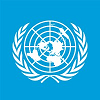Ccac Agriculture Expert - Paris, France - United Nations
Description
Result of ServiceThe "CCAC Agriculture Expert" will provide full-time support to help drive action in the agriculture sector and ensure a well-functioning and strategic CCAC Agriculture Hub.
S/he will provide direct support to national governments and CCAC National Consultants; provide technical reviews of funding proposals related to the sector; provide support for technology assessments and advise on new business models; provide support for policy and regulatory development; engage key organizations to expand the sectoral network; deliver various activities as set out in the Work Plan and Budget; and contribute to internal coordination within the CCAC Secretariat.
Work LocationParis, France (or remote, with monthly/frequent travel to Paris at consultant's own cost)
Expected duration
12 months
Responsibilities:
The UNEP-convened Climate and Clean Air Coalition (CCAC) is a partnership of governments, intergovernmental organizations, and representatives of the private sector, the environmental community, and other members of civil society.
The CCAC is the only international initiative working on integrated climate and clean air solutions to reduce the rate of near-term warming.
It focuses on fast action to reduce emissions of short-lived climate pollutants (SLCPs) including methane, black carbon, HFCs and tropospheric ozone.
The United Nations Environment Programme (UNEP) hosts the Secretariat at the Economy Division in Paris.
The CCAC's Agriculture Engagement Strategy aims to spur substantive SLCP reductions from the agricultural sector by 2030 by focusing on the locally most appropriate and technically feasible measures.
SLCP measures to reduce these pollutants in the sector:
- have been identified in various publications by the CCAC Scientific Advisory Panel, including the 2021 Global Methane Assessment and pervious regional integrated assessments on climate and clean air;
- emphasize multiple benefits from actions, including productivity gains and position the agricultural sector to make a significant contribution to midcentury net-zero climate mitigation and sequestration strategies through cross linkages with other climate forcers, as for example, fertilizer use (N2O).
The CCAC's Agriculture Hub convenes a network of experts from governments, NGOs, IGOs and the private sector.
Together the Hub defines and drives a common vision, enabling peer-to-peer exchanges, exploring case studies and best practice, facilitating matchmaking between projects, programmes and funding from various partners, and aiming at creating a project pipeline.
The Hubs also advise governments on ways to define and implement mitigation measures based on sector-specific requests, and play a key role in identifying and sharing SLCP mitigation measures and strategies for implementation at scale, and opportunities for transformative change in their sectors.
Objectives:
Engage with countries and key partners/organisations on CCAC sectoral work - especially to:
- Encourage and, as appropriate, provide support for "targeted expert assistance"
- Advise countries and CCAC National Consultants on ad hoc questions related to the sector related to policy and implementation
- Support and assess requests for proposals to drive national action and transformation of the sector
- Through CCAC-funded projects
- By engaging CCAC partners and other relevant organisations
- By expanding the CCAC Agriculture Hub's network of implementing partner organisations
- By engaging relevant private sector partners
- By providing support for technology assessments and advising on new business models
- By providing support for policy and regulatory development
- Monitoring related and complementary activities
- Building consortia for proposals for nonCCAC funding
- Leveraging CCAC communications or political mobilisation
- Strategize ways to mobilise partners and funds for projects
- Support sectoral Hub country coleads in advancing the Engagement Strategy
- Support highlevel political engagement, such as through Ministerial roundtables
- Strategize and leverage CCAC assets such as political leverage via the CCAC Ministerial, the Work Plan & Budget and/or communication channels/strategies
- Review CCAC Engagement Strategy for sector and propose updates as needed
- Strategize opportunities to encourage cross-sectoral cooperation
- Strategize cooperation opportunities for regional, subregional or other groupings
- Advise countries and CCAC National Con
Plus d'emplois de United Nations
-
Technical Expert On Cooling and Cold-chain
Paris, France - il y a 6 jours
-
Administrative Assistant
Paris, France - il y a 2 jours
-
Procurement Assistant
Paris, France - il y a 3 jours
-
Project Coordinator
Paris, France - il y a 5 jours
-
Advisor for Green Urban Projects in Colombia
Paris, France - il y a 1 semaine
-
Intern - Environment Affairs temporary
Paris, France - il y a 1 semaine

